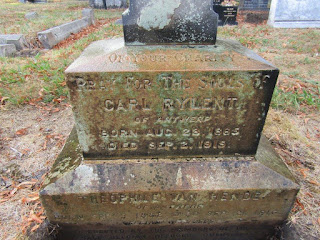8.45 – 9.00
|
Registration
|
9.00 – 9.05
|
Welcome
|
9.05 – 9.25
|
Opening paper
·
Christophe
Declercq, Janet Bradshaw
|
9.25 – 10.20
|
Community
engagement and legacy
·
Anne Logan and
Alison MacKenzie - Further Discoveries of the Belgian Community in Tunbridge
Wells, Kent
·
Robert Lee -
Forgotten Refugees of the First World War: Birkenhead’s Belgian community and
their legacy
|
10.20 – 10.40
|
coffee break – posters are available
|
10.40 – 11.30
|
Local
responses
·
Ciaran Stoker
- Belgian Refugees in Devon during the First World War (provisional title)
·
Jolien De
Vuyst - “Most of the time he was in England, he seemed to have a very, very
good time”. A family history of two Belgian refugees in Birmingham
(1914-1919)
|
11.30 – 12.45
|
Transnational and
cross-cultural stories
·
Astrid de Beer -
"Gasten en verse vis…" Belgian refugees in Tilburg, 1914-1918
·
Julian Walker
- Belgian refugees in British wartime culture
·
Jan Dewilde -
Composers in exile: Music for the king, the people, and the fatherland
|
12.45 – 1.30
|
Lunch break – poster sessions
|
1.30 – 2.50
|
Panel: Belgian
refugees in the Celtic ‘fringe’ of Scotland and Wales
·
Jacqueline
Jenkinson - The effects of War trauma on Belgian refugees in Scotland
·
Kieran Taylor
- The Catholic Church and Scotland’s Belgian Refugees
·
Lorna Hughes -
Uncovering Belgian refugees in Wales (provisional title)
|
2.50 – 3.20
|
Small
narratives, large impact: mental health and trauma
·
Rob Ellis, Rebecca
Gill - Belgian refugees in British asylums: the case of Colney Hatch
|
3.20 – 3.30
|
coffee break – posters are available
|
3.30 – 4.50
|
Social history
without borders?
·
Gilles De
Beuckelaer - Profiles of Belgian refugees in Tilburg during WWI
·
Toni Vitti -
Croeso cynnes Cymreig – A warm Welsh welcome
·
Helen Baker -
Belgians in the Laboratory of Exile
|
4.50 – 5.20
|
Project presentation Tracing the Belgian Refugees
·
Alison Fell,
Philippa Read, Christophe Declercq
|
5.20 – 6.30
|
Drinks and further networking
|
The
event is kindly supported by the Faculty of Arts & Humanities, KU Leuven,
Brussels Campus, as well as CERES, the Centre for Reception Studies (KUL).
Peter Cahalan has kindly accepted to act as
honorary chairman of the event. The symposium expresses its sincere gratitude
to Pat Heron and Marleen Van Ouytsel, who sadly did not live to enjoy the
fruits of their efforts in relation to Belgian refugees research and
commemorations.
The conference fee is 20 euros, to be paid upon arrival. You need to register through https://www.eventbrite.com/e/where-do-we-go-from-here-one-day-symposium-on-belgian-refugees-tickets-49336808723.
The conference fee is 20 euros, to be paid upon arrival. You need to register through https://www.eventbrite.com/e/where-do-we-go-from-here-one-day-symposium-on-belgian-refugees-tickets-49336808723.





